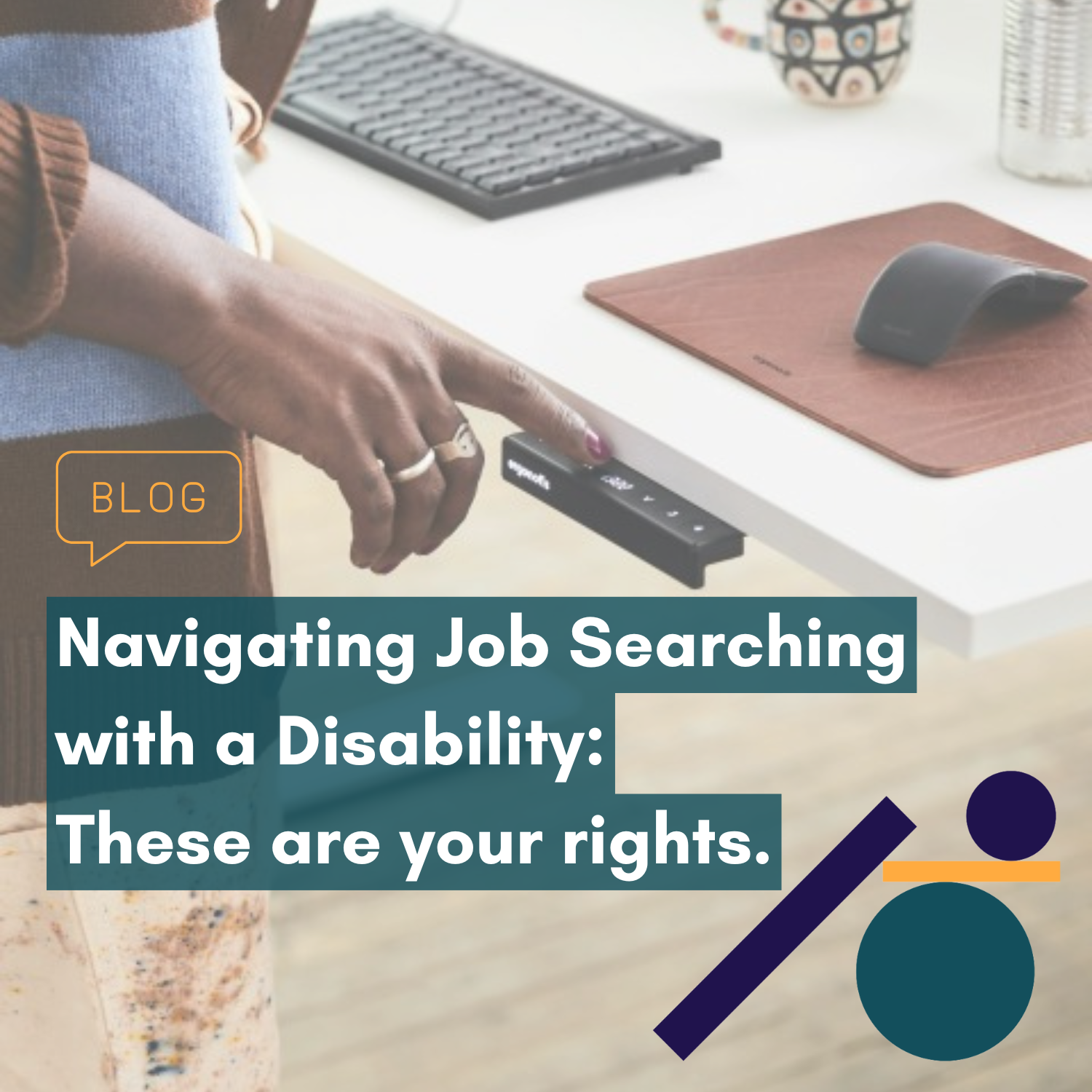Looking for a job can feel challenging, and if you have a disability, you may feel uncertain about discussing your needs with potential employers. However, having a disability should never discourage you from applying for roles that interest you. A truly inclusive employer will value your skills and be willing to make reasonable adjustments so you can perform at your best.
Understanding your rights and feeling confident in asking for the support you need can make all the difference. Knowing that employers have a legal obligation to ensure fair treatment can empower you to advocate for yourself throughout the hiring process and beyond.
Your Right to Reasonable Adjustments
In the UK, the Equality Act 2010 protects job applicants and employees with disabilities from discrimination. Employers must make reasonable adjustments to remove barriers that could disadvantage disabled applicants or employees. This applies at all stages of employment—from recruitment to career progression and even during periods of ill health or return to work.
But what does “reasonable adjustments” actually mean? These are modifications that help level the playing field so you can perform your role effectively. They can include:
✅ Physical adaptations to the workplace (e.g., ramps, accessible desks, or modified equipment)
✅ Flexible working hours or remote work options
✅ Adjusted responsibilities to better align with your skills and needs
✅ Specialist software or assistive technology
✅ Extra time during recruitment assessments or interviews
If you require adjustments, don’t hesitate to ask. Employers want the best people for the job, and ensuring you have what you need to succeed benefits both you and them.
Who is Eligible for Reasonable Adjustments?
Under theEquality Act 2010, a disability is defined as along-term, substantial conditionthat affects daily activities. This includes:
🔹 Physical disabilities
🔹 Mental health conditions such as anxiety or depression
🔹 Neurodivergent conditions like autism or ADHD
🔹 Progressive illnesses (e.g., multiple sclerosis, Parkinson’s, or some cancers)
If your condition falls under this definition, you have the right to ask for reasonable adjustments.There is no stigma in doing so—your skills and experience are what matter most.A good employer will recognise the value you bring and support you accordingly.
How to Request Reasonable Adjustments
1. Before or During the Job Application Process
Youdo nothave to disclose your disability unless you choose to. However, if adjustments would help during the interview or recruitment process, it’s worth mentioning them early. You can do this:
In your application or cover letter– A simple, positive request such as:"I have a hearing impairment and would appreciate an interview in a quiet setting to support effective communication."
When scheduling an interview– You can ask for extra time, accessible locations, or an alternative format for assessments.
At the interview itself– If you feel comfortable, you can discuss your needs with HR or the hiring manager.
2.Once You’re in the Job
If you need adjustments in your role, speak with yourline manager or HRas soon as you feel ready. You may prefer to put your request in writing to ensure clarity. A well-structured request should include:
The nature of your disability
How it affects your work
The adjustments you believe would help
If you’re unsure what would best support you, you can consult your healthcare provider or occupational health specialist. Many employers also haveAccess to Workgrants available, which provide funding for specialist equipment, coaching, or transport needs.
What If You Face Resistance?
Most employers want to create an inclusive workplace, but if you face challenges in getting the support you need:
Stay confident in your rights– Reasonable adjustments are a legal requirement, not a favour.
Engage in an open, solutions-focused discussion– Employers may suggest alternative adjustments that still meet your needs.
Seek advice– Organisations like ACAS and the Equality Advisory and Support Service (EASS) can provide guidance if you feel an employer is being unfair.
If necessary, you have the right to escalate concerns through internal grievance procedures or, in extreme cases, legal action.
Be Empowered in Your Job Search
Requesting reasonable adjustments is not about asking for special treatment—it’s about ensuring you have equal access to opportunities, just like everyone else. When you work in an environment that meets your needs, you can thrive, contribute fully, and showcase your true potential.
A good employer will welcome your request and see it as part of fostering an inclusive, productive workplace. So be confident, know your rights, and go after the roles you truly want—you deserve to be valued for your skills, experience, and unique perspective.
Your talent is what truly matters. Never let anything hold you back.
If you want to know more about your rights, or see if any of our opportunities are suitable to yourself get in touch here
